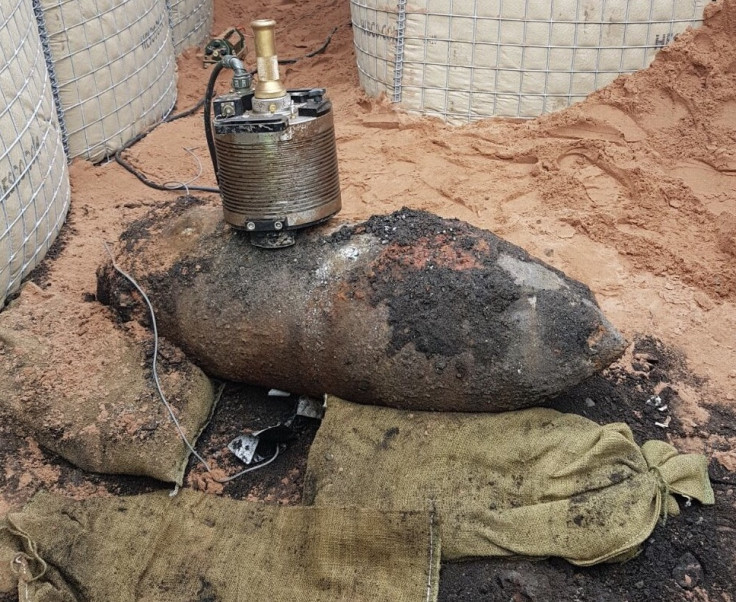Drone captures controlled explosion of a 500lb German WW2 bomb
The potentially deadly shell must have lain in situ for over 70 years.
An unexploded World War Two bomb weighing up to 500lbs has been discovered in Birmingham, setting off a huge operation to safely remove the device.
The potentially deadly shell must have lain in situ for over 70 years, but was discovered by construction workers at a site off Priory Road, Aston, during routine work at 9.45am GMT on Monday (15 May).
Once police were called, it was quickly identified as a German bomb from the Blitz and officers set about disarming the live round.
However, after closer inspection, the scale of the task was realised and specialist bomb squads from the Army had to be called in to deal with the device.
Troops from 721 Explosive Ordnance Disposal (EOD) Squadron, part of 11 EOD Regiment Royal Logistics Corps, along with 101 Engineer Regiment, were then deployed to the site.
They had two options: either remove the bomb to a secure location or detonate it where it lay, however they decided on the latter due to the dangers at play.
But due to the nearby surroundings, a significant amount of work was required to make the blast radius safe.
An army statement said: "The troops needed to conduct a significant amount of mitigation work to prepare the site, after a 500-metre cordon had been set up, due to the amount of sensitive infrastructure in the area, particularly the A38 Aston Expressway flyover and a gas pipe. "
The statement added: "Soldiers worked tirelessly throughout the day and night, for 28 hours, to construct a blast wall to protect the infrastructure in case the bomb detonated. 250 tonnes of sand was brought in, on 13 truckloads, to construct a secure blast mitigation structure."

The bomb was then detonated on Tuesday and footage from the blast was captured via drone.
Sergeant Paul Daniel, of 721 EOD Squadron, told the Birmingham Mail: "This was the largest disposal of a device in situ in recent history and was particularly challenging due to its badly corroded state and the amount of sensitive infrastructure in the area.
"Our top priority was to safely secure the site before carrying out a controlled explosion. We are pleased this has gone well and that the public can now return to their homes and the roads surrounding the area."
A few photos from last night... Hard work from brave EOD military colleagues. pic.twitter.com/1pMKUq2VNK
— Chris Johnson (@ChSuptJohnson) May 16, 2017
© Copyright IBTimes 2025. All rights reserved.




















